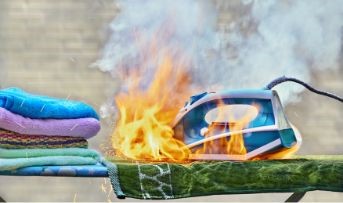General Insurance Blogs, Articles & Updates by - Magma Insurance
Have us call you
- RENEW YOUR POLICY
- BUY NEW POLICY

The pros and cons of travel insurance: Is it worth the investment?
Wanderlust is an exciting feeling to cherish as it blooms the thought of mindful exploration of new places and experiences. Whether visiting with friends, family, or alone, safety matters most alongside enjoyment. And when we talk about safety while travelling, travel insurance is the first step you need to take. Travel insurance covers different areas and uncertainties to help protect you against any financial loss during the trip.
However, many people need to know this insurance and its pros & cons. This article presents you with a complete idea about the same.
What is travel insurance?
Travel insurance covers your belongings against theft or damage and any medical condition arising while travelling. Most travel insurance policies cover lost or stolen luggage, medical emergencies, and trip disruptions. The insurance also covers rental car damage and trip cancellation. When you opt to buy a travel insurance policy, there are different types that you can check. You can buy domestic travel insurance if you are travelling within the country.
Similarly, if you are travelling overseas, get international travel insurance. However, the policy amount varies as per the type of insurance you are purchasing.
Let’s look at some of the pros and cons of travel insurance.
Pros of buying travel insurance
1. It guarantees peace of mind
The main benefit of purchasing travel insurance is the sense of security it provides. Sometimes you worry about any circumstances during the journey and cancel the trip. Even in the worst-case scenario, having travel insurance guarantees peace of mind. With travel insurance, you can focus on making your trip memorable without worrying about the financial stress that might occur due to unavoidable circumstances arising during your trip.
2. Get compensation for lost luggage
In many cases, passengers travelling by air miss their luggage after landing at their destination. Moreover, travellers end up missing their important items during the trip. Missing and lost luggage can be chaotic and hamper your trip excitement. But, with the right travel insurance, you get coverage on phones, cameras, and other essential items. You need to mention all details while claiming the same.
3. Complete medical expense coverage
You cannot predict when you will fall ill or face health issues while travelling. However, because of the abrupt changes in climate, food, and time zone, there is a greater risk of contracting an illness when travelling. You should have a solid strategy to deal with medical issues when travelling overseas because healthcare can be expensive. Once again, travel insurance comes in handy for such a situation. It offers complete coverage for any medical costs incurred due to an illness or accident while travelling. However, it would help if you kept all the medical bills ready while claiming.
Cons of travel insurance
1. It is expensive
If you compare the price of travel insurance with other policies, you will find it relatively high. Also, many people avoid purchasing it since they never feel it is important and necessary.
2. High chance of getting rejected
Your travel insurance claim could be rejected for several reasons. Insurance companies try to bring down the compensation or deny the claim if they find that you don’t have valid or expected proofs and documents to produce. Even if you are claiming for minor injuries, it may get rejected. So, it is best to read all the policies carefully to avoid loss.
Having travel insurance by your side is a worthy investment if bought from the right insurer and by clearly understanding the policy features. If you are looking for travel insurance policies, carefully compare plans of different insurers and invest in the best one. Read the terms and conditions thoroughly and don’t hesitate to ask questions if you aren’t clear about any clause. For additional safety, investing in the best personal accident policy in India alongside a robust travel insurance will help you have a peaceful travelling experience. It’ll ensure you celebrate joyous moments with your loved ones and leave all the worries aside.
Click HERE to buy the best personal accident policy in India.
Disclaimer: The information provided above is for illustrative purposes only. To get more details, please refer to policy wordings and prospectus before purchasing a policy.

What precautions should you take to keep your electronics safe from fire outbreaks at home?
Electronics have become essential to our daily lives, and keeping them safe from fire outbreaks is critical. Numerous things, including broken cords, malfunctioning appliances, and overloaded outlets, can result in electrical fires. Home insurance can provide financial security if a fire breaks out and damages your electronics or other belongings. You can customise your coverage options based on your needs and budget using home insurance online platforms that let you compare multiple policies from various insurance companies.
A fire outbreak might threaten your life and result in significant property damage. Therefore, taking safety precautions to protect your electronics is crucial.
1. Avoid flammable materials
Combustible substances like paper, cloth, and other flammable materials can quickly catch fire and spread. So it's crucial to keep these things away from electronics. Keep your electronics away from draperies, beds, and upholstered furniture. Place your gadgets in a different room and keep them away from combustible objects.
2. Use high-quality extension cords
Use high-quality extension cords that are appropriate for your electronic devices whenever you use them to supply external power. Ensure the cables are in good condition and have the correct voltage and power. Utilising extension cords that are the proper size for your equipment is crucial. Overheating and increased fire danger might result from using too-small cables.
3. Try not to overload electrical outlets
Overloaded electrical outlets are one of the primary causes of electrical fires. If too many devices are plugged in, one outlet or power strip might become overheated and catch fire. Use a surge protector to prevent the overloading of electrical outlets to avoid this. Surge protectors are made to cover any excess voltage and safeguard your equipment from power surges.
4. Inspect and maintain electronics regularly
Regularly check your equipment for signs of wear and tear, like frayed cords or damaged outlets. Replace any outlets or cables that are broken as soon as possible. Cleaning the dust and debris off of your equipment regularly will also help prevent overheating. Internal harm can result from overheating, raising the possibility of a fire.
5. Install smoke detectors
Smoke detectors are essential for quickly spotting fires so you have time to respond and get help. Place smoke detectors in each room of your house, especially the ones that house your electronic devices. To ensure your smoke detectors are operating correctly, examining them frequently is necessary.
6. Unplug electronics when not in use
Always remember to unplug your electronics from the outlets while not in use. Electronics should always be cleared to avoid overheating, which could start a fire. Certain electronics, such as space heaters and irons, if used carelessly, can catch fire quickly.
7. Fires should never be left unattended
Ensure you're constantly watching anything involving a flame or a lot of heat, such as cooking, microwave, etc. Keeping an eye on these electronics will enable you to promptly identify any issues or deviations from the norm. As a result, you might take care of the issue quickly to ensure your family's safety.
Protecting your electronics from fire outbreaks at home is essential to prevent potential damages. Numerous things, including overloaded outlets, damaged cords, etc., can result in electrical fires. A fire outbreak might endanger lives and seriously harm property. Take the above precautions to protect yourself and your home from the adversities of fire due to electronics.
Purchasing home insurance online is an easy and effective approach to safeguard your house and possessions against unforeseen losses or damages. Reviewing the terms and conditions of your home insurance policy is essential before purchasing.
Click HERE to buy home insurance online.
Disclaimer: The information provided above is for illustrative purposes only. To get more details, please refer to policy wordings and prospectus before purchasing a policy.

Your newborn: Best tips to babyproof your home
For soon-to-be parents, a lot of significant changes seem to be right around the corner. Parents spend the months of the pregnancy expecting the baby and several lifestyle changes. While buying all the necessary items like baby clothes, diapers, and cribs is essential, making sure your home environment is safe for the baby is just as important.
First-time parents might look around their home and feel confused about what modifications to make to protect their baby. They might even question the need for it. However, as overwhelming as the responsibilities of a newborn can be, it is integral that parents appropriately baby-proof their homes.
Even though experts claim that your toddler will likely get a few bumps and bruises with every alteration you make to your home, parents still must childproof their home. Since knowing where to begin the process can be baffling, here are some simple tips to follow!
1. Be aware of heavy objects:
Children start crawling, walking, and running in no time. As they grow older, they will begin pulling and pushing things around. This is when heavy objects can become an issue. Whether it’s heavy showpieces or furniture, if the toddler pulls or tugs on them, they may cause an injury. So, make sure to keep the glassware or delicate pieces away and keep the heavy objects out of the baby’s reach.
2. Secure electric plug points:
Toddlers around the 15-17 months age range quickly become fascinated with sticking their fingers or other things in any place they might fit. Most of the time, they turn out to be electric sockets. Parents must be aware of this habit and how dangerous electric points can be.
Use tight-fitting electrical outlet covers to ensure that the baby cannot stick their tiny fingers or jam pens, pencils, or toys into the electric points. You must also confirm not to leave lamps or other appliances with their current on if they are within the baby’s reach.
3. Keep the dangerous home supplies out of reach:
Cleaning and other home supplies contain plenty of harmful chemicals in them. Once kids are allowed to consume food and liquids, they may start to put random items into their mouths.
Small objects are a choking hazard, and it is essential to keep them out of reach. House supplies like cleaning agents and liquids need to be stored at a height or locked in a cupboard so that the child does not have access to it.
4. Place door and window stoppers:
Appliances and furniture have doors that can easily open. Once the child can reach them, installing stoppers to these doors and windows is crucial to prevent them from hurting themselves. Suppose you’ve invested in reliable home insurance India plan; you can add these necessary babyproofing objects to your house.
5. Do away with the mats and tablecloths:
Children have a habit of running around the house. They may accidentally slip on mats and rugs placed in various corners of the home. Tablecloths that hang low are easily accessible to the kids who can pull on them along with all the items placed on them. This can not only hurt and injure them but also damage household items.
To conclude, these tips can give you an excellent start to babyproofing your house to protect your child. With all the wear and tear your home undergoes, babyproofing can be stress-free if you have the right home insurance to rely on. Your ideal home insurance can even cover you for unexpected losses or damages or provide compensation in case of mishaps like theft, fire, earthquake, and natural calamities, etc.
Click HERE to buy the best deals on home insurance India.
Disclaimer: The information provided above is for illustrative purposes only. To get more details, please refer to policy wordings and prospectus before purchasing a policy.

Buying a house? Here are some tips for finding the right real estate broker
The majority of house buyers and sellers use the services of real estate brokers to make the process hassle-free. A real estate broker is a middleman who connects a buyer and a seller. An experienced broker can help you secure a good deal while keeping both parties' interests in mind. Unfortunately, the real estate sector in India is rife with misinformation and uncertified real estate agents.
As a result, finding the perfect broker is crucial in making informed decisions and avoiding costly mistakes. Finding the right real estate broker is as important as finding the best home insurance policy. Here is how to pick one.
1. Authenticity:
Reputation is a key component in the real estate sector. A reputable broker maintains relationships with developers, owners, and other real estate professionals. Question at least two clients about the agent's authenticity, knowledge, service quality, and, if possible, the pricing of homes they acquired through your agent. Preferably opt for a licensed broker who is a member of the National Association of Realtors (NAR).
Brokers must be RERA (Real Estate Regulatory Authority) registered in addition to being a part of a reputed organization. The state's RERA website posts all of the agent's info. You can look up these facts on the website using the registration ID of the real estate broker.
2. Understanding of the neighbourhood:
When looking for a real estate broker, the first thing you should look for is someone who knows the neighbourhood. Your broker should be well-versed in the local market conditions.
A good real estate broker is well suited to reveal the nitty-gritty of an area, the real estate inventory, and the prospects. It's also necessary to know current property trends. You'll be in good hands if you find a broker familiar with the local rules and regulations regarding property purchases.
3. Potential prospects:
Do not finalise a broker on the spur of the moment with a single offer. Investigate the market and speak with at least two or three agents. You can ask questions, learn about their experience and working style, and determine their areas of specialisation and professionalism by meeting and interviewing a few possible brokers.
4. Brokerage:
It's critical to negotiate your agent's fee upfront without ambiguity. In most Indian cities, the fee is usually 2% for transactions worth more than Rs 50 lakh and 1% for transactions below. Real estate brokers frequently skip the fee section and charge a high percentage after the contract is closed, leading to disagreements.
Buying a home is both a financial and emotional investment. Many homeowners will also agree that purchasing a home is a complicated job. The right real estate agent can make the process less stressful while ensuring that you get a decent deal.
After finding a great deal on the house, the sense of claiming it as your own is unquestionably a once-in-a-lifetime experience. It is suggested to purchase home insurance coverage to protect your new home from undesired circumstances and shield your personal space with a layer of financial protection.
To know more about home insurance, click HERE .
Disclaimer: The information provided above is for illustrative purposes only. To get more details, please refer to policy wordings and prospectus before purchasing a policy.

